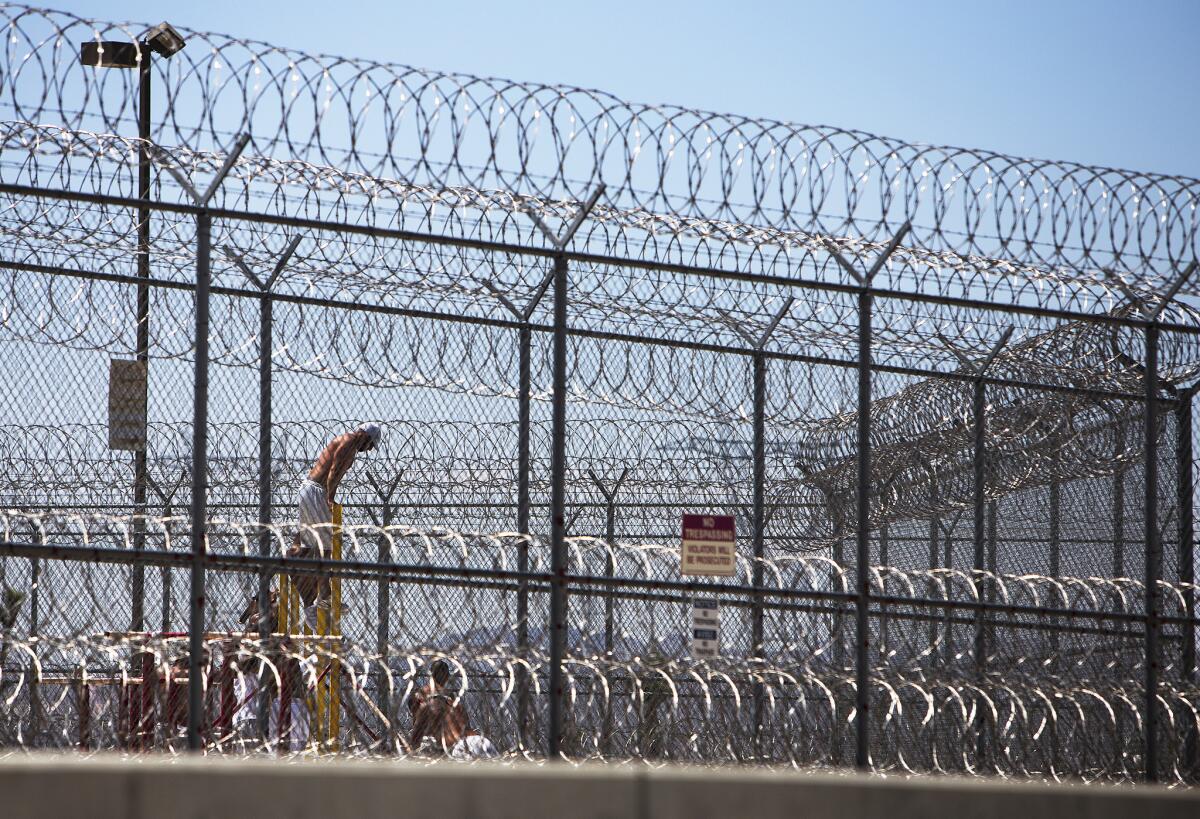Opinion: Mentally disabled to get legal help in immigration cases

This is a court ruling that’s sure to inflame the anti-immigration crowd. A U.S. District Court judge this week ordered the federal government to begin mental-disability screening for those detained in three states on suspicion of being in the country illegally, and to provide lawyers for those determined unable to represent themselves in removal hearings.
It was the right call.
Under immigration law, noncitizens caught without legal permission to be in the country -- whether they sneaked across a border or overstayed a visa -- are subject to an immigration court removal proceeding. They have a right to legal counsel if they can find a lawyer, but unlike criminal courts, the government has no responsibility to provide a lawyer for those who can’t afford one.
So fewer than half of the detainees have lawyers in a system built on pro bono attorneys or those working for immigration-rights nonprofits. And having a lawyer matters. A number of studies have found that detainees represented by a lawyer have a much higher rate of success in winning permission to stay.
But those with mental disabilities face separate hurdles, whether the issue is an intellectual deficiency or mental illness. Last year, the courts ruled in a class-action case that detainees with mental disabilities were entitled to legal representation provided by the government. The main plaintiff, Jose Antonio Franco-Gonzalez, had the cognitive abilities of a 2-year-old and had been held in detention for five years without a resolution to his case, in large part because under the system he was expected to represent himself. Pro-bono lawyers eventually found out about him and the lawsuit ensued under the American Civil Liberties Union.
This week’s order sets out the criteria immigration officials must use, and the steps reflect common sense. When someone is detained at an immigration facility for more than 72 hours, he or she must be assessed for evidence of “significant mental disability,” and within 14 days be interviewed by a mental health professional to determine whether they are able to represent themselves in court. That finding, and the evidence, then gets passed along to an immigration judge who makes the final determination.
This isn’t likely to add another speed bump to a system that’s already slowed by excessive traffic. At the end of August, there were 402,000 cases pending before approximately 260 judges in 59 U.S. immigration courts, nearly 83,000 of them in California. The average wait time nationally for resolution to a case was 567 days, or more than a year and a half. In California, the wait time was 698 days, or a month shy of two years. Adding another layer of review aimed at preserving rights will have no impact on the slow speed of the system.
The drawback: The order pertains only to detention centers in California, Arizona, and Washington, the states where the class-action plaintiffs were housed. The Department of Homeland Security and the folks at Immigration and Customs Enforcement should adopt these criteria nationwide.
The anti-immigration voices will argue reflexively that the Obama administration must enforce all the nation’s immigration laws. That is exactly what this court order does. It requires the government to respect the rights that the law grants to people accused of being in the country illegally, including their right to petition the court for redress. And it further recognizes that those who are incapable of representing themselves in a byzantine court system are entitled to help.
It doesn’t mean they get to stay. It means they get to have their day in court, on even footing.
Follow Scott Martelle on Twitter @smartelle
More to Read
A cure for the common opinion
Get thought-provoking perspectives with our weekly newsletter.
You may occasionally receive promotional content from the Los Angeles Times.











